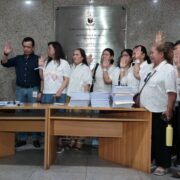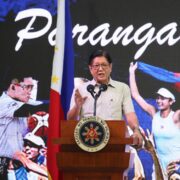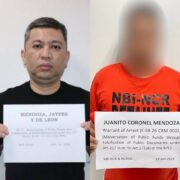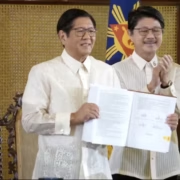Firm’s bid to recover sequestered lots nixed
The Supreme Court has dismissed the petition of a real estate company to recover two properties it claimed were sold to former President Ferdinand Marcos Sr. under threat and intimidation. In a 71-page decision, the high tribunal affirmed the Sandiganbayan’s ruling and junked the petition filed by Ortigas and Company Limited Partnership (OCLP) for annulment/declaration of nullity of documents, deeds and titles, and recovery of possession with preliminary injunction.According to Associate Justice Marvic Leonen, the party challenging the validity of a contract, in this case the OCLP, carries the burden of proving that intimidation happened through clear and convincing evidence.
“Mere allegations are not sufficient proof. The courts have no way of determining how a person is coerced or intimidated into signing a contract unless the details on how they are coerced are established,” he said.
The OCLP said that in 1968, Marcos Sr. and his wife Imelda asked Francisco Ortigas Jr., former president of Ortigas, to donate the property to them as the couple wanted it as an investment.
However, when the company’s board of directors rejected the request, a “visibly angry” Marcos allegedly threatened to “use his vast powers to harass [Ortigas] and its officers” if they would not agree.
Supposedly “out of fear,” the board agreed to the demands of the couple and a deed of conditional sale was executed for a 16-hectare portion of the land that was sold at the low price of P40 per square meter, or a total of P6.4 million.
The sale was executed in favor of Maharlika Estate Corp., Marcos’ nominee, and in 1971, it was transferred to Mid-Pasig Land Development Corp., which Ortigas claimed was owned and controlled by Marcos.
An adjacent 2.4 hectares of land was also included in the deed of sale and transferred to Mid-Pasig.
After Marcos was ousted as president in 1986, Anchor Estate (previously Maharlika) and Mid-Pasig voluntarily surrendered the titles and possession of the properties to the government. These were later placed under the control of the Presidential Commission on Good Government. INQ

















